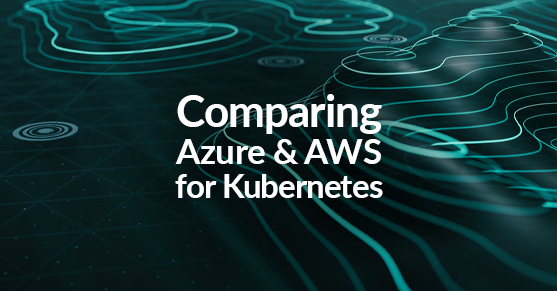Choosing between Azure and AWS for Kubernetes depends on an organization’s specific needs and requirements. Both cloud providers offer robust Kubernetes services with similar features and capabilities. However, there are several additional factors to consider when choosing between Azure and AWS.
Cost
Azure and AWS offer pricing models based on the resources used, with different pricing tiers depending on the level of performance and features required. Azure provides a more granular pricing structure, which can benefit organizations that need to manage costs at a more detailed level. AWS offers a broader range of pricing options and instance types, which can provide more flexibility for organizations that need to scale their infrastructure up or down quickly.
Uptime and Reliability
Both Azure and AWS offer high levels of uptime and reliability, with service-level agreements (SLAs) that guarantee availability for their respective Kubernetes services. For example, Azure Kubernetes Service (AKS) guarantees 99.9% uptime for multi-zone clusters, while Amazon Elastic Kubernetes Service (EKS) guarantees 99.95% uptime for single-cluster deployments. Both providers also offer a range of tools and features to ensure that Kubernetes clusters are highly available and resilient.
Ease of Use
Azure and AWS offer user-friendly interfaces and tools for deploying and managing Kubernetes clusters. However, Azure may appeal more to organizations already using Microsoft tools and platforms, as it provides tight integration with other Microsoft services such as Azure DevOps and Active Directory. AWS, meanwhile, offers a wider variety of tools and integrations, including support for popular third-party tools such as Jenkins and GitLab.
Security
Both Azure and AWS offer robust security features for their Kubernetes services, including network segmentation, access controls, and encryption. However, Azure may appeal more to organizations prioritizing compliance and regulatory requirements, as it offers more built-in regulatory compliance certifications than AWS.
Integrations
Azure and AWS offer various integrations with other tools and services, including monitoring and logging tools, databases, and DevOps tools. Organizations should consider the necessary integrations and ensure their chosen cloud provider supports them.
Support
Both Azure and AWS offer support options for their Kubernetes services, including documentation, forums, and support tickets. However, organizations should consider the level of support they need and ensure that their chosen provider offers the appropriate level of support.
Community and Ecosystem
The Kubernetes community and ecosystem are active and vibrant, with many open-source tools and resources available for developers and IT teams. Organizations should consider the size and activity of the community and ecosystem for their chosen cloud provider, as this can impact the availability of tools and resources.
Conclusion
Both Azure and AWS offer robust Kubernetes services with similar features and capabilities. However, choosing between the two depends on an organization’s specific needs and requirements. By considering factors such as cost, uptime and reliability, ease of use, security, integrations, support, and community and ecosystem, organizations can make an informed decision when choosing between Azure and AWS for Kubernetes. Ultimately, organizations should select the provider that best fits their specific needs and requirements.
For questions about our Azure Cloud Services or AWS Cloud Services, please contact us!
This post was originally published here.

